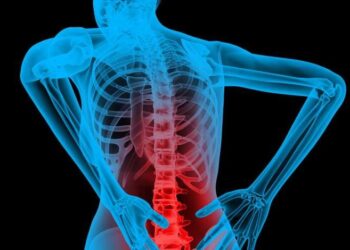Muscle cramps are a common and often unpleasant occurrence that many people endure. These uncontrollable muscle spasms can occur in a variety of muscle groups, generating severe discomfort and temporary immobility. While muscular cramps can be caused by a variety of circumstances, one sometimes neglected culprit is a calcium deficiency. Calcium, a necessary mineral, is essential for muscular contraction and neuron function. Dr. Aashish Chaudhry, Managing Director, Senior Consultant & Head, Department of Orthopaedics & Joint Replacement, Aakash Healthcare, New Delhi, spoke with India.com to learn more about the link between muscle cramps and low calcium levels, emphasizing the importance of maintaining adequate calcium intake for overall musculoskeletal health.
Muscle cramps often occur in the calf muscle of the back of the lower leg. It is often characterized by a momentary sharp pain along with a muscle lump beneath the skin. Just like its sudden appearance, muscle cramp disappears the same way without any botheration.
LOW CALCIUM LEVELS AND MUSCLE CRAMPS
Calcium ions are released from storage within muscle cells when a nerve impulse causes a muscle to contract. These ions aid in the binding of actin and myosin, two proteins involved in muscle contraction. Inadequate calcium levels can disturb this mechanism, resulting in muscle cramps and possible weakening.
When the body lacks calcium, the equilibrium between nerve messages and muscle contractions might be disrupted. This interruption can increase the likelihood of muscle cramps. Individuals with low calcium levels may experience more frequent and acute muscular cramps, particularly after physical activity or prolonged muscle use.
Numbness and Tingling: Calcium insufficiency can impair nerve function, causing numbness and tingling in the extremities.
Brittle Nails: A lack of calcium can weaken nails, making them more prone to breaking.
Dental Problems: Calcium is necessary for strong teeth. Low calcium levels can lead to dental issues such as weaker enamel and an increased risk of cavities.
HOW TO PREVENT MUSCLE CRAMPS THAT ARISE DUE TO LACK OF CALCIUM?
Calcium-Rich Foods: Getting enough calcium is vital for preventing muscular cramping and maintaining general health. Dairy products (milk, cheese, yoghurt), leafy green vegetables (spinach, kale), fortified plant-based milk, nuts (almonds), and fish with soft bones (such as canned salmon or sardines) are all calcium-rich foods.
Supplements: Supplements may be recommended for those who are unable to satisfy their calcium requirements through diet alone. However, before beginning any supplementation regimen, see a healthcare practitioner to confirm proper dosage and avoid any interactions with other medications or medical conditions.
If muscular cramps persist despite efforts to increase calcium intake, it is best to consult a medical practitioner to rule out any underlying medical disorders and guarantee comprehensive therapy.
Source:In







 Finance
Finance







